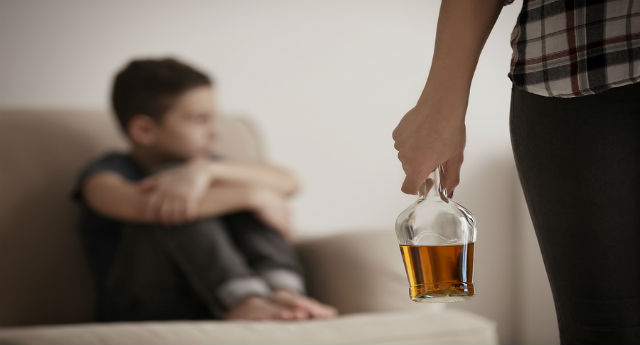Children who grew up in families with an alcoholic parent are three to four times more likely to become alcoholics themselves. They can suffer from a host of behavior and emotional issues due to their dysfunction home. Effects of alcoholism on the family extend beyond the alcoholic alone. In fact, communication in families of alcoholics tends to become problematic the more the system becomes dysfunctional.
So how can you start to identify potential problems in yourself and in your family? And what treatment options exist for those who grew up in alcoholic homes? We review here, and invite your questions about growing up in an alcoholic family at the end.
Characteristics of an alcoholic family
A grown child of an alcoholic is generally all too aware of the split personalities living inside of the body of the alcoholic parent that raised them. One on hand, feelings of love and safety are associated with the parent. On the other hand can be fear, uncertainty and even hatred. Family of origin issues and alcoholism kind of go hand-in-hand.
As the father or mother transitions in and out of recovery, often the family transitions with them in a bizarre tango between a sober and drunken family unit. From the outside the family might appear the same, but inside intrinsically a shift is apparent and everyone living in the house can feel it when it happens.
Increased risk for alcoholism
Adult Children of Alcoholics have an increased chance of suffering from alcoholism. For the nearly 30 million people living in the United States who are Adult Children of Alcoholics (ACoAs), the chances of them becoming alcoholics themselves are three to four times higher when compared to a child that didn’t grow up with an alcoholic parent.
These children are at a disadvantage suffering from suppressed emotions and unhealthy coping skills, symptoms of their environment growing up. A common belief is these adult children tend to abuse alcohol themselves based on their genetics while another train of thought would argue the environment these children were raised in is the cause of their alcohol abuse.
Common traits of Adult Children of Alcoholics
Regardless of which train of thought you subscribe to, these adult children of alcoholics all seem to suffer from a similar set of symptoms which have been identified as the ACoA syndrome. The primary symptom of the syndrome is fear. This fear branches out into a number of aspects in their lives—intimacy, times of change, coping—they also fear abandonment and making mistakes. Perhaps as a result of this fear, or even in addition to it, ACoAs also tent to have aggressive, manipulative and/or perfectionist tendencies.
These traits are a result of a dysfunctional home centered around a profound lack of empathy and distinct tolerance of abuse—generally accompanied by denial. It can be difficult to identify what a ‘normal’ home and interpersonal relationships are like when they weren’t experienced in the home. The unfortunate correlation between alcoholism and abuse only serves to cause further psychological damage to ACoAs.
What are available treatment options?
Some of these children do grow into well-adjusted individuals while others struggle to cope with their emotions and relationships. Similar to alcoholics, many ACoA benefit from seeking treatment and attending AA meetings while others have had success through twelve-step programs or alternative healing therapies.
In the past decade, services for ACOAs have grown substantially as therapists and counselors have recognized an existing need. Some ACoAs don’t realize some of the issues in their lives could potentially stem back to their childhood including depression and anxiety and are often unable to express how they feel. Unfortunately, for some, alcohol becomes a way to cope with these feelings or self-medicate.
As a result the best resources for treatment are trained counselors or therapists working in the field of alcoholism. There are groups specific to Adult Children of Alcoholics Al-Anon that have been a tremendous help. One of the biggest hurdles for getting help is recognizing the need for it and seeking it out.
Are you an ACoA?
Please share with us your questions or experiences. We want to connect you with resources nearby, and with one another. We will respond to all comments personally and promptly.








